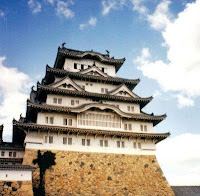Energy Efficiency Traveling and the "World Habitat Day"
 Since 1986 the United Nations set a World Habitat Day falls every first Monday in October organized by various countries around the world, aims to build energy-efficient environment, reduce waste by making use of clean technology.
Since 1986 the United Nations set a World Habitat Day falls every first Monday in October organized by various countries around the world, aims to build energy-efficient environment, reduce waste by making use of clean technology.
World tourism must respond to this movement appropriately considering the number of tourists from European countries who choose environmentally friendly hotels. Travelers are very concerned about this, they came from Denmark, Finland, Norway, Sweden and other countries on the European region.
As an example of the hotels in Bali, they try to understand that it was related to the tastes of tourists, the environmentally conscious tourists spend an average of more than 100 USD per day, a condition favorable tourism actors.
Tourist sites should be made more energy efficient so that carbon emissions released in the tourist area and the urban environment is significantly reduced, in the long run, the reduction of greenhouse gas emissions in urban and tourist areas, such as carbon, is done by utilization of new and renewable energy sources.
 While the UN Habitat has set the 2011 World Habitat Day theme is "Cities and Climate Change", while Indonesia has set a "Green City Solutions to Climate Change" as a sub-theme.
While the UN Habitat has set the 2011 World Habitat Day theme is "Cities and Climate Change", while Indonesia has set a "Green City Solutions to Climate Change" as a sub-theme.
Executive Director of the Bali Hotel Association (BHA) Djinaldi Gosana on the sidelines of “Energy Efficiency Week” workshop in Denpasar, Bali, Tuesday, October 4, 2011 said, "The tourists prefer the hotels that was environmentally friendly because it fits with their lifestyle in their country of origin. They are also concerned with the limited nature of fossil resources, like petroleum."
Certainly not an easy thing for urban communities, especially when their city became one of world tourist destinations, urban lifestyle of the people who tend to wasteful energy.
Tourists visiting a tourist site and has gained a lot of information before deciding to choose a holiday destination, environmentally friendly tourism is a future of tourism, there is no other choice.
-----------------------------------------------------------------------
(Source UN Habitat, Kompas /Images S Ju, mnn and cri)


Comments
Post a Comment